In Partnership with NYC & COMPANY
PRESENTED BY
After a year like 2020, we’re all looking forward to getting out into the sunshine again.
And as summer shifts into high gear, New York City is waiting with open arms to revitalize your sense of adventure.
Because beyond its bustling urban landscape and familiar landmarks, New York City is also home to bucolic outdoor spaces, blossoming botanical gardens, expansive beaches and parklands bursting with wildlife.
We’ve rounded up the best New York City has to offer in the great outdoors. Surf the waves at the Rockaways, ride the Cyclone in Brooklyn, see the Yankees play in the Bronx, stroll the picturesque grounds of the Cloisters in Manhattan and immerse yourself in culture and greenery at Staten Island’s Snug Harbor Cultural Center & Botanical Garden—among many other experiences.
Each of the boroughs is, of course, packed with groundbreaking art exhibits, must-try restaurants and revered landmarks. And as you’ll see in the following pages, each borough also offers a natural landscape in which to play, wander, wonder and discover.
So no matter your tastes, NYC offers a backdrop for unforgettable outings, whether you’re basking in the sunlight or strolling beneath the lights in Times Square.
Table Of Contents:
The Bronx
Brooklyn
Manhattan
Queens
Staten Island
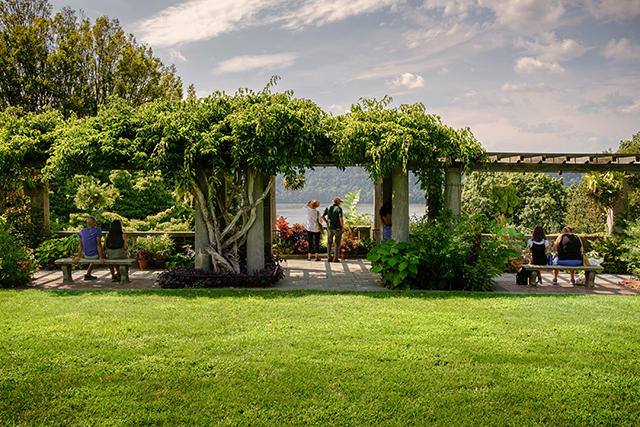
The Bronx
While it’s well-known as the home of hip-hop and the New York Yankees, the Bronx also has art deco masterpieces and literary landmarks, wide-open green spaces and even a nautical neighborhood with fishing-village charm.
Yankee Stadium
Take in the grandeur and fan-fueled energy of Yankee Stadium, home to the 27-time World Series champions. The franchise’s history is on full display throughout the stadium, including out in center field, where retired numbers and plaques in Monument Park honor the team’s greatest players. If you have a young baseball fan, bring a mitt for a chance to throw the ball around on the Macombs Dam Park fields next to the stadium, which are built on the site of the original “House That Ruth Built.” Parking lots line the streets leading up to the stadium. For a budget-friendly option that drops you off right in front, take the train.
Save on sports tickets at AAA.com/Tickets.

Bronx Zoo
At America’s largest metropolitan zoo, visitors can see Asian elephants, gorillas, tigers, grizzly bears and the denizens of a beautiful butterfly garden, among hundreds of other species. General admission is free (and admission to special exhibits reduced) on Wednesdays, although advance timed tickets are required. For additional fees, you can do other fun things at the zoo such as renting a cart tour for groups of up to six, climbing and zip lining at Treetop Adventure and enjoying private encounters with a penguin, giraffe, sloth or other favorite animal.
Save up to 20% on tickets with AAA discount.
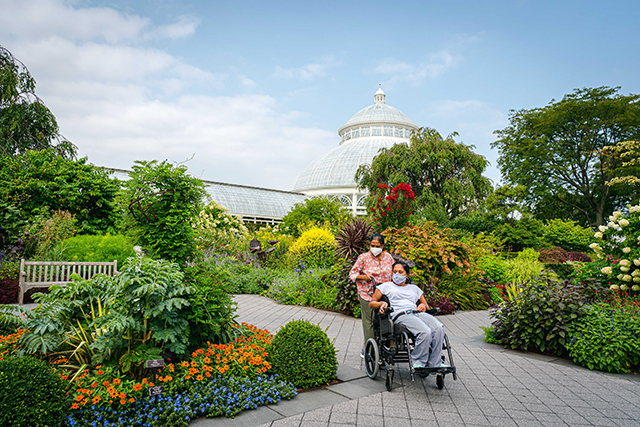
Garden Outings
Spend the day enjoying the lush scenery at the New York Botanical Garden. From an edible garden to the Rockefeller Rose Garden, each area and trail features a spectacular display of flowers and greenery. Two on-site restaurants and a picnic pavilion can help you make a day of it, while guided tours, art exhibits and family-friendly activities are regularly available.
Save up to 20% on garden passes with AAA discount.
The lesser-known Wave Hill public garden and cultural center is equally impressive. Located in the Riverdale section of the Bronx, it overlooks the Hudson River and is easily accessible by car or public transportation. Come and get inspired by the immaculate grounds, art displays and year-round tropical blooms in the conservatory greenhouses. On-site and nearby parking are available.
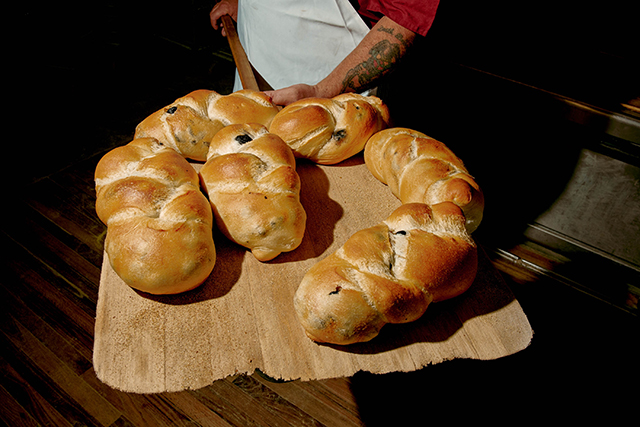
Arthur Avenue
After a day at the Bronx Zoo or the New York Botanical Garden, Arthur Avenue in the borough’s Belmont neighborhood makes a great dinner stop. The Little Italy of the Bronx offers fresh foods at every turn: homemade pasta and pastries, pizza and espresso, along with old-school butcher shops and fish markets, plus traditional red-sauce restaurants.
Summer through fall, on Thursdays through Saturdays from 6pm to 10pm and Sundays from 1pm to 9pm, Arthur Avenue is closed off to traffic from East 188th Street to Crescent Avenue and transformed into “Piazza di Belmont” for outdoor dining and strolling.
Stop into the Arthur Avenue Retail Market, an indoor bazaar that serves as the permanent home for what were once pushcart street vendors selling sausages, cheeses, fresh fruit, cigars and more. Mike’s Deli is a fixture at the market; order a sandwich like the Michelangelo, a fresh mozzarella and prosciutto “work of art,” and people-watch.
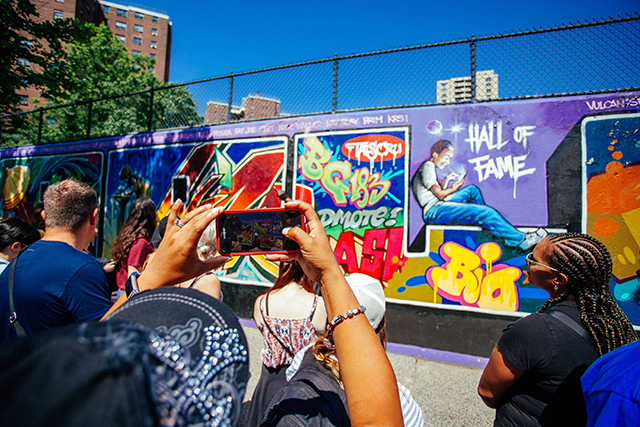
Hush Hip Hop Tours
NYC is rightly known for hip-hop, but the Bronx is its birthplace. Hush Hip Hop Tours offers tours throughout the boroughs, highlighting sites significant to the inception and growth of hip-hop music and culture. Journey through the history of DJ-ing, MC-ing, break dancing and graffiti, set to a classic soundtrack. Stops on the Boogie Down Bronx Tour include famous murals, the Bronx Walk of Fame and the landmark location where DJ Kool Herc hosted the first hip-hop party in 1973.
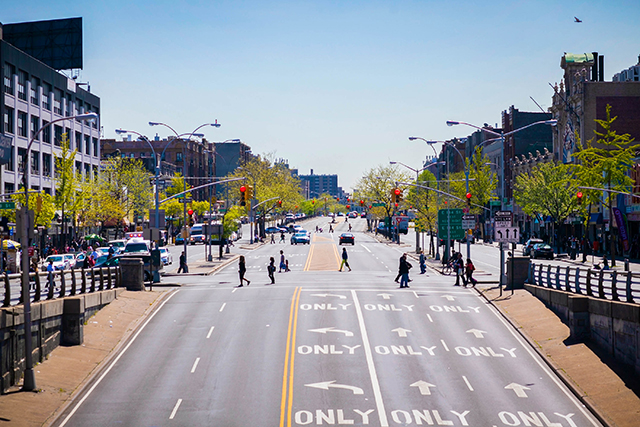
Grand Concourse
When driving through the South Bronx, the Grand Concourse thoroughfare, running from 138th Street up to Mosholu Parkway, provides a wide view of the borough’s history and culture. Stop for a stroll through the historic district between 153rd and 167th streets, where you can spot structures that are part of the nation’s largest collection of art deco and art moderne apartment buildings. Look out for the famous Fish Building, at 1150 Grand Concourse, with its colorful marine-life mosaics. At 1040 Grand Concourse, the Bronx Museum of the Arts specializes in contemporary works from artists of diverse cultural backgrounds; admission is free but requires advance timed tickets.
Orchard Beach
Sitting on the Long Island sound with views overlooking City Island, Orchard Beach was called “The Riviera of New York” when it was first introduced in the 1930s. It is the Bronx’s only public beach. Soak in the sun, walk on the promenade and stop by a snack stand, or play on one of the 26 courts for basketball, volleyball and handball.
During beach season, parking is $8 on Mondays through Fridays for cars and vans, and $10 on weekends and holidays. A senior citizen discount is available on weekdays with valid ID.
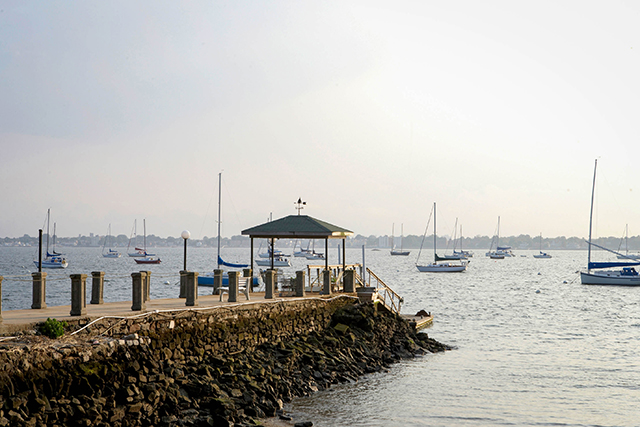
Pelham Bay Park and City Island
Pelham Bay Park and City Island are two appealing spots at the northern end of NYC.
At more than 2,700 acres—three times the size of Central Park—Pelham Bay Park is NYC’s largest park. Highlights include an 18-hole golf course, mini-golf course, equestrian center, tennis courts and Orchard Beach, and you can tour its opulent Bartow-Pell Mansion Museum, an 1842 estate once used as a summer home for Mayor LaGuardia.
City Island is a charming nautical village with a laid-back vibe that’s especially sought-after in the summer; it’s filled with yacht clubs and seafood restaurants on or near the water and offers opportunities for scuba diving. On land, spend your day perusing the galleries and antique shops. Set aside some time to explore the village’s maritime roots at the City Island Nautical Museum (free, weekend afternoons only).
Visitors on their way to City Island must pass through Pelham Bay Park (about a five-minute drive). There are several nearby parking garages to Pelham Bay Park and street parking in City Island.
Edgar Allan Poe Cottage and Poe Park
Poe Park is named after famous American author Edgar Allan Poe, who rented its white farmhouse, now known as Poe Cottage. Built in 1812, it is where Poe wrote “The Bells,” “Eureka” and “Annabel Lee.” The cottage has been restored to its original appearance; you can only admire the exterior at the moment (tours are currently on hold). The Poe Park Visitor Center carries on the legacy of the poet as an art and exhibition space, offering cultural and educational programming, as well as visual, literary and performance workshops for the community. The center is usually open on Tuesdays through Saturdays from 8am to 5pm and, for now, is conducting all its programs outdoors in the park.
Van Cortlandt Park and House Museum
This 1,146-acre park boasts one of the nation’s first public golf courses, the Van Cortlandt Golf Course, opened in 1895, as well as the nine-hole Mosholu Golf Course, which debuted around 20 years later. Beyond golf, the park has playgrounds and picnic spots and is a city hot spot for watching cricket.
The Van Cortlandt House Museum, built in 1748 for a prominent New York family, is the oldest building in the Bronx. The mansion and surrounding grounds, once a wheat plantation, provide history buffs with a glimpse into 18th-century life, art and the experiences of the people who lived and worked there.
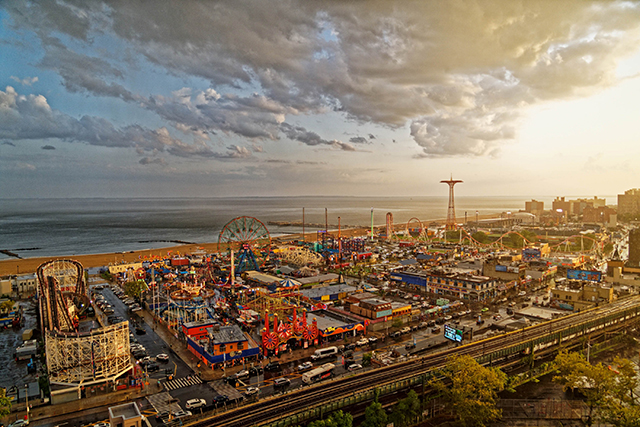
Brooklyn
The City’s most populous borough honors its industrial past with pride while welcoming the new and avant-garde with open arms. At Domino Park in Williamsburg, an old sugar refinery now holds beach volleyball nets and bocce courts; at the Brooklyn Museum in Prospect Heights, bold contemporary art sits among antiquities; and Coney Island’s wooden Cyclone rivals sleek new rides for thrills.
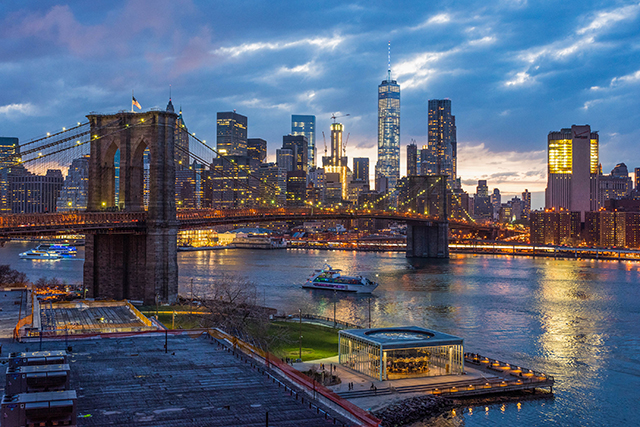
Brooklyn Bridge Area
There’s a reason the Brooklyn Bridge is arguably the most famous suspension bridge in the world—and a NYC icon. The Gothic Revival marvel, opened in 1883, offers visitors the chance to stroll across the East River on its elevated walkway. Once back on land, you’ll find unlimited recreation options at Brooklyn Bridge Park, with 85 acres of grassy expanses, superb vistas and rocky coastline. Here among the piers you can roller-skate, kayak, scope public art installations, play soccer and run along the waterfront.
Need something for the ’gram? Visit the intersection of Washington and Water streets in Dumbo—a neighborhood whose name is an acronym for “Down Under the Manhattan Bridge Overpass”—to get the quintessential shot of the Manhattan Bridge’s struts perfectly framing the Empire State Building. The neighborhood also offers panoramic waterfront views, carousel rides and oyster bars on cobblestone streets.
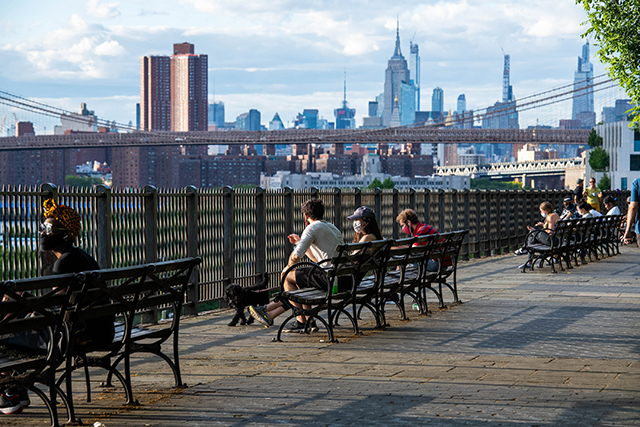
Brooklyn Heights and Brooklyn Heights Promenade
Near the Brooklyn end of the Brooklyn Bridge is historic Brooklyn Heights. The residential neighborhood features a mix of lovingly restored brownstones and quaint eateries and shops. Swing over to tree-lined Montague Street, where you can pop into City Chemist for some luxe skin-care staples and stop by the neighborhood fixture Lassen & Hennigs to see (and perhaps sample) the gourmet cakes and pies lining the window display case.
Take in expansive views of Manhattan from the Brooklyn Heights Promenade, a pedestrian walkway dotted with benches and plenty of spaces to sit for a spell. Visit at night, when the City’s skyline sparkles to life for a visual feast.
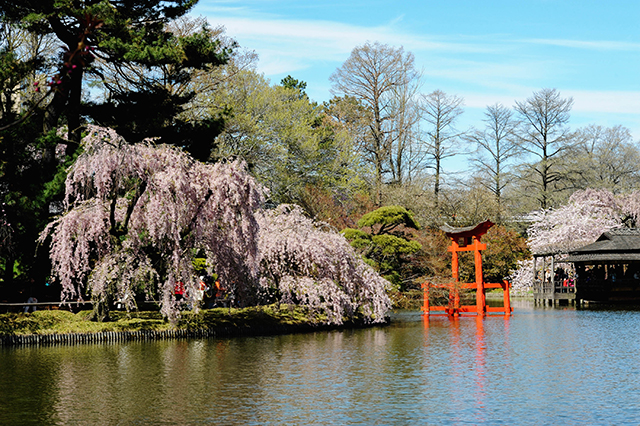
Brooklyn Museum and Brooklyn Botanic Garden
You’ll find one of the country’s oldest and largest cultural institutions in a stately circa-1897 building nestled alongside the Brooklyn Botanic Garden. Inside the Brooklyn Museum are five floors of art ranging from Egyptian antiquities and Japanese woodprints to European masterpieces and contemporary works by artists like Cindy Sherman and Kara Walker. Next door is the Brooklyn Botanic Garden, home to more than 12,000 species of plants spread across 52 acres. In June 10,000 roses bloom into life in the Cranford Rose Garden. More summer and fall highlights include the wildflowers in the Native Flora Garden and the changing colors of the oaks near the Cherry Esplanade.
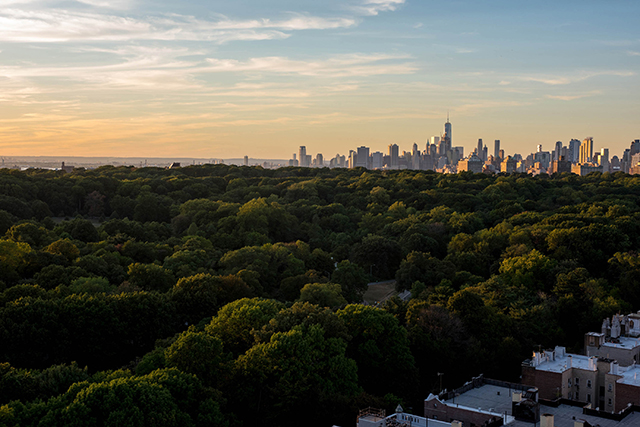
Prospect Park
The 526-acre Prospect Park has been delighting visitors and residents since 1867. Immerse yourself in Brooklyn’s only forest in the Ravine, and scout out the area’s scenic water features by hiking along the Waterfall Trail. The park is also home to Prospect Park Zoo, the borough’s only lake, an ice- and roller-skating rink, the seasonal Smorgasburg food market, pop-up nature events (courtesy of the Audubon Center) and bike lanes. The summer months are especially festive, when the BRIC Celebrate Brooklyn! Festival draws acts from across the City—and the globe—to the park.
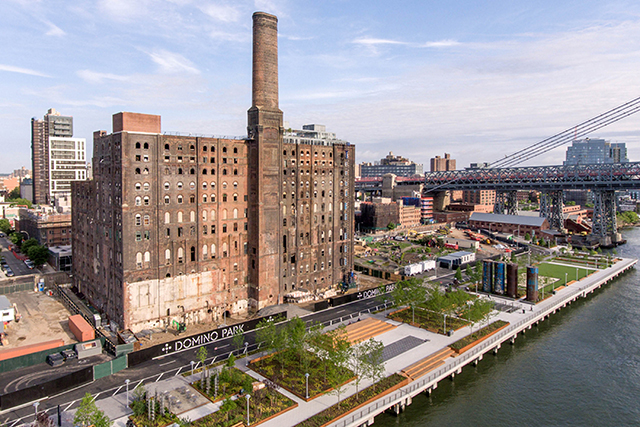
Domino Park
Once a thriving hub of industry, Williamsburg is now known for its indie vibe, hip nightlife and trendsetting galleries and restaurants. Former industrial sites still abound, and some of them—like the old Domino Sugar Refinery—are being redeveloped into new, imaginative spaces. Five-acre Domino Park is a testament to this rebirth, with an elevated walkway offering stellar views of the East River and the Manhattan skyline, water features for children (and children at heart), a playground, beach volleyball court, bocce court and a dog run. Hungry? Stop by Tacocina for savory tacos on house-made tortillas, perhaps washed down with a refreshing horchata.
Flatbush
One of the most diverse neighborhoods in the City, Flatbush is a mélange of Caribbean, Latino, African American, Jamaican and Pakistani cultures. It also churns out notable Americans at a good clip: the late Ruth Bader Ginsburg, Neil Diamond, Barbra Streisand and US Senator Bernie Sanders are all natives. Explore the neighborhood with a Little Caribbean walking tour, where you’ll discover the City’s West Indian culture and can sample authentic jerk chicken, Jamaican patties and rum.
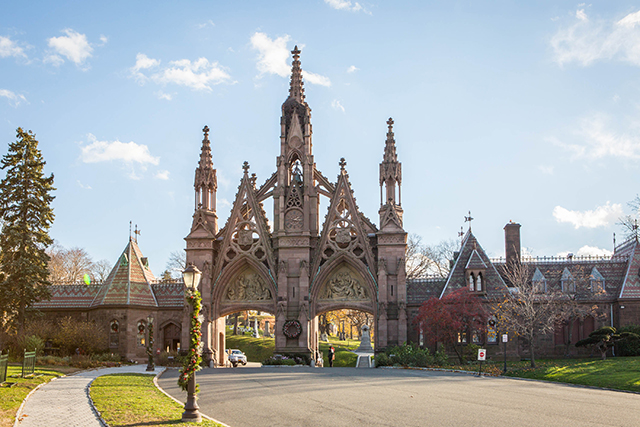
Green-Wood Cemetery and Sunset Park
Founded in 1838, Green-Wood Cemetery functioned much as a park during its early years, with visitors picnicking and taking carriage rides through the grassy expanses. Its popularity, in fact, helped lead to the creation of Central Park and other public green spaces in the US. Today, there are 570,000 interred in its 478 acres, including Leonard Bernstein, Pete Hamill and Jean-Michel Basquiat. Green-Wood is also an arboretum, with 690 different species of trees that make for spectacular bird-watching. Just down the street is Sunset Park, where an elevated perch allows for great views of the City’s skyline and the Statue of Liberty. For sustenance, walk a few steps over to Brooklyn’s Chinatown on Seventh and Eighth avenues and enjoy bubble tea, barbecue ribs and other culinary delights.
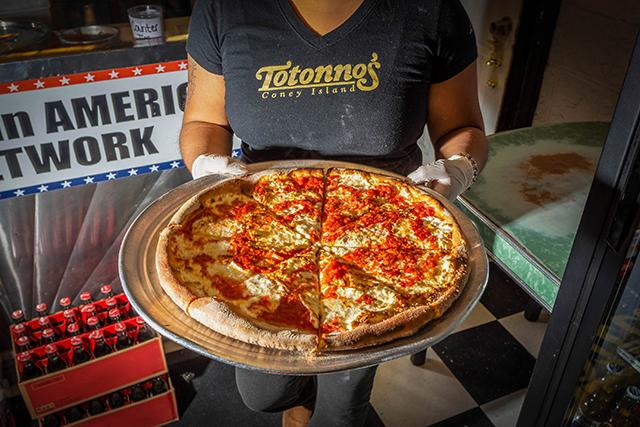
Coney Island
The Coney Island neighborhood crackles to life in the summer, when visitors vie to win prizes on the Boardwalk, circle around on the Wonder Wheel and take in a sideshow performance or two. Of course, you can’t skip a ride on the classic Cyclone roller coaster at Luna Park. Thrill seekers should take a spin on Luna Park’s Thunderbolt (can you say 90-degree drop?) and the brand-new Phoenix roller coaster (scheduled to open this summer) at Deno’s Wonder Wheel Amusement Park. Forget about healthy—quick, tasty and calorie-laden vittles are the order of the day here, whether you’re grabbing a hot dog at Nathan’s Famous, sharing a pizza pie at Totonno’s (some say it’s the City’s best; check before going to see if it has reopened) or trying some fudge and a candy apple from Williams Candy. A visit to the New York Aquarium’s Ocean Wonders: Sharks! exhibit is sure to please the young ones among you, as will seeing the resident sea lions, penguins, sea otters and other aquatic animals.
Save up to 25% on New York Aquarium tickets with AAA discount.
Shirley Chisholm State Park
This park honoring Brooklyn native Shirley Chisholm—the first Black congresswoman and the first Black person to seek the nomination for president from one of the two major political parties—is a haven of verdant grasses and recreational trails located on 407 acres of reclaimed land that jut into Jamaica Bay. The park sits on the old Pennsylvania Avenue and Fountain Avenue landfills, which the City used from 1956 to 1985.
Native trees, shrubs and grasses lure songbirds and other wildlife to the property, which you can traverse through 10 miles of paved and gravel trails. Two self-guided hikes offer options for vigorous or more meditative strolls along the waterfront, and you can also check out a bike—for free—through Bike New York’s Bike Library, near the park entrances. The exchange runs from spring through early fall.
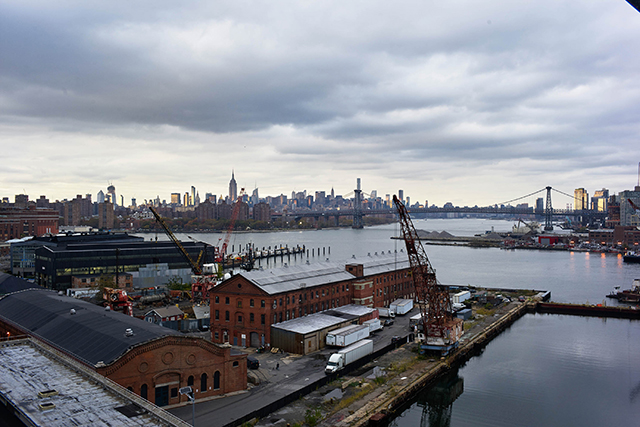
Brooklyn Navy Yard
Founded in 1801, the Brooklyn Navy Yard churned out the World War II–era warships USS Maine, USS Arizona and USS Missouri and employed 70,000 before being decommissioned in 1966. Now it’s been redeveloped into an industrial park housing 500 businesses and employing 11,000 people. Buildings 77 and 92 host a bevy of shops and eateries and are open for free tours. Sample craft whiskey at Kings County Distillery’s outdoor tasting room or stop by Russ & Daughters for authentic bagels and lox. Tip: if you arrive by NYC Ferry, an autonomous vehicle will transport you to the Navy Yard.
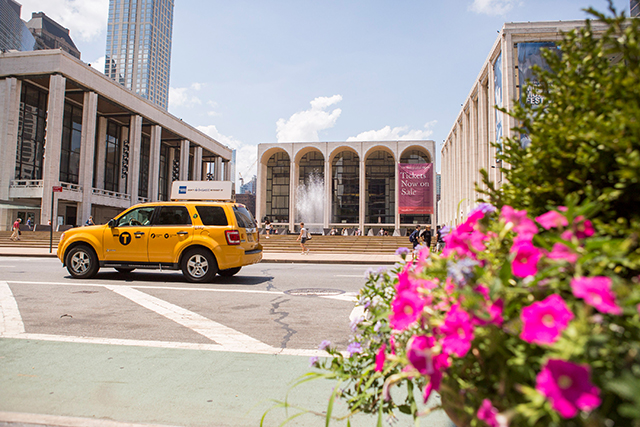
Manhattan
It’s go big or go home in Manhattan, the City’s urban core. Here’s where you’ll find the neon-lit electricity of Times Square; flagship stores, hotels and eateries; and, reopening later this year, the best in Broadway entertainment. It’s brash, it’s loud, it’s sensory overload—and it’s unapologetically New York.
Amazing Views
Get a whole new perspective on the City by seeing it from a different vantage point.
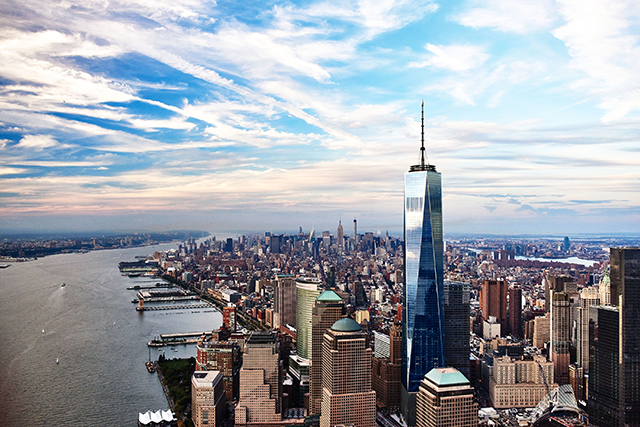
One World Observatory
Located on the top three floors of the tallest building in the Western Hemisphere, One World Trade Center, One World Observatory delivers the experience—and views—of a lifetime.
One World Observatory has five elevators that ascend to the 102nd floor in 47 seconds. Immersive LED technology in each cab shows a virtual time-lapse that recreates the development of New York City’s skyline from the 1500s to the present day.
See your place of origin added to the registry of guests (over 10 million visitors and climbing) at the Global Welcome Center. The dazzling data is presented on the largest curved indoor LED in the world. Step in closer and you’ll become part of the show.
The Horizon Grid, a three-minute multimedia spectacular, showcases 400 years of history—from the arrival of Henry Hudson to the rise of the World Trade Center. It’s powered by 145 screens with an original music score. And after all the excitement, guests can stop by ONE Dine for a cocktail, a quick bite, or make reservations for a gourmet meal.
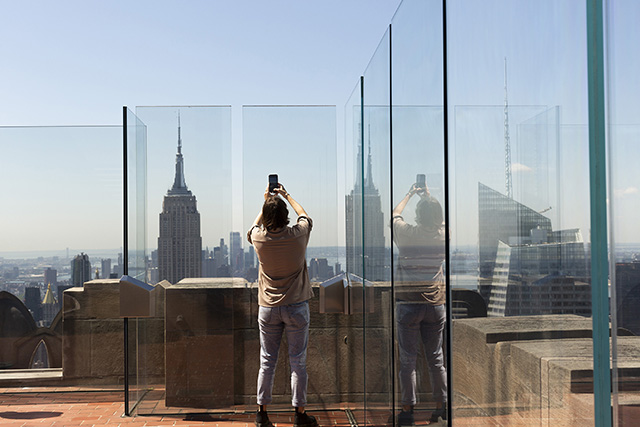
Top of the Rock
Head to the Top of the Rock for unparalleled 360-degree views of the City from its three indoor and outdoor viewing decks. The 70th-floor open-air roof deck is the perfect spot for taking pictures of the downtown skyscrapers, the Empire State Building, Central Park and more. You’ll find it all at Rockefeller Center, which has so much to do and see. It’s currently open from 10am to 10pm.
More Amazing Views
The Empire State Building in Midtown has two observation decks: the classic, open-air platform on the 86th floor made famous by countless movies and an enclosed one on the 102nd floor. Visit Edge in Hudson Yards for a cutting-edge (pun intended) experience with indoor and outdoor sky decks, outward-facing walls and the Glass Floor, which looks straight down 100 stories to the street below.
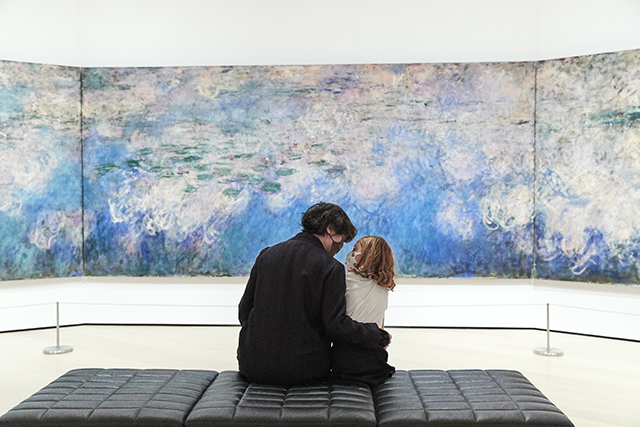
The Museum of Modern Art
The Museum of Modern Art is now open at full capacity with protocols—including masks, social distancing and timed ticketing—in place to ensure that each visit is safe and enjoyable for everyone. The museum is a quick walk from Times Square, Central Park, and Rockefeller Center, and it’s known for its masterpieces like Vincent Van Gogh’s The Starry Night and Claude Monet’s Water Lilies.
This summer, MoMA is debuting two major exhibitions: Cézanne Drawing, which includes more than 200 rarely seen works by the iconic artist; and Automania, which features classic cars in the galleries and garden. All exhibitions are included with admission.
Ticket holders also receive special discounts at local restaurants and parking garages; and children ages 16 and under receive free admission, making MoMA a great value for families.
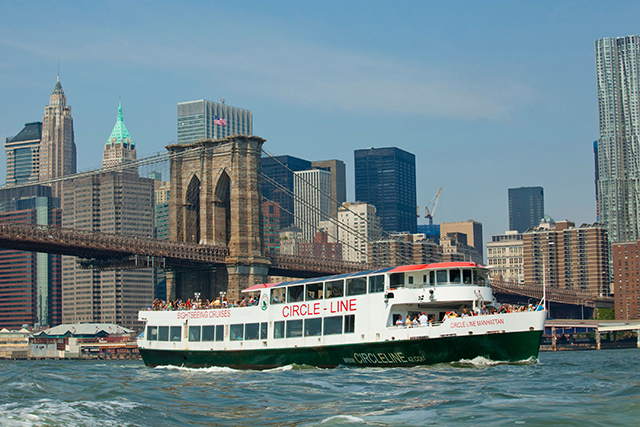
Circle Line
With a Circle Line cruise, you’ll see the City in a whole new way. Circle Line has six daily cruises—the most of any sightseeing company—on the newest boats. It’s the only company that takes people around the entire island of Manhattan, with two different cruise times available.
In-person tour guides certified by the New-York Historical Society narrate all cruises, and all crew and guests must wear masks to keep everyone safe.
All boats have large outdoor decks, perfect for enjoying summer weather in a safe manner. They also feature fully stocked concession stands with summer treats like hot dogs, sandwiches, salads and beverages of all sorts.
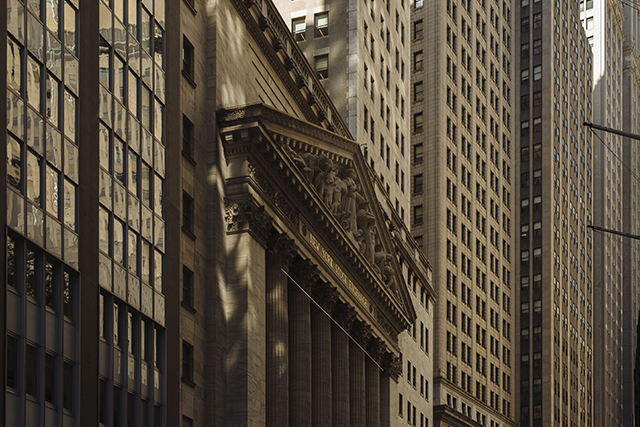
Historic Lower Manhattan
This is where it all began—the City, that is, back in the 1600s. You can still see traces of that history in the cobblestone streets and architectural marvels that weave through the current-day skyscrapers, which confirm the area’s standing as a government and financial powerhouse. You’ll find Wall Street and the Financial District, including sites such as the New York Stock Exchange (look around for the famous Charging Bull and Fearless Girl statues) and Federal Hall National Memorial, where George Washington took the presidential oath of office. Nearby, the Irish Hunger Memorial stands as a remembrance to the 1.5 million people who died during the Irish famine of 1845–1852, and the African Burial Ground National Monument honors the hundreds of Africans buried on that site in the 17th and 18th centuries. Go more in-depth with Inside Out Tours, which offers a guided walking tour of sites related to slavery and the Underground Railroad. Round out your tour with a stop at one of the many eateries on Stone Street (Fraunces Tavern, in business since 1762 and located nearby, once hosted a visit from then-general George Washington) and a visit to the Battery, a 25-acre park with a perfect view of the Statue of Liberty.
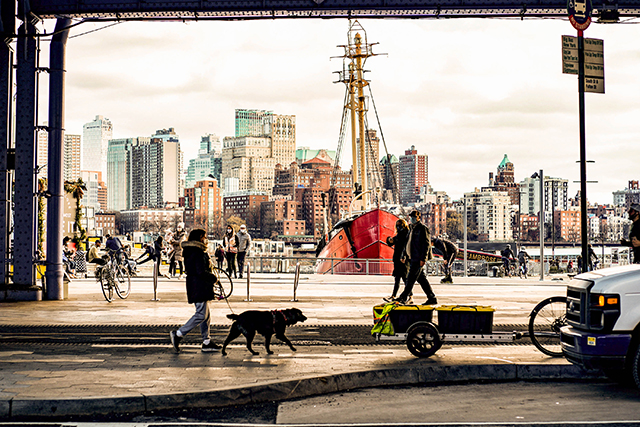
The Seaport
At The Seaport you’ll find plenty of signature NYC experiences, including an arts program featuring up-and-coming creators, summer concerts on The Rooftop at Pier 17, eclectic dining options and epic waterfront views.
The area has a true neighborhood vibe, with community gathering spaces and programming like free fitness classes at Seaport Fit, rooftop movies at Seaport Cinema and exhibits in partnership with Lower Manhattan Cultural Council’s River To River summer arts festival. If you’re in the mood for a meal, enjoy waterfront dining from a growing roster of world-renowned chefs, including Jean-Georges Vongerichten, David Chang, Andrew Carmellini and Helene Henderson.
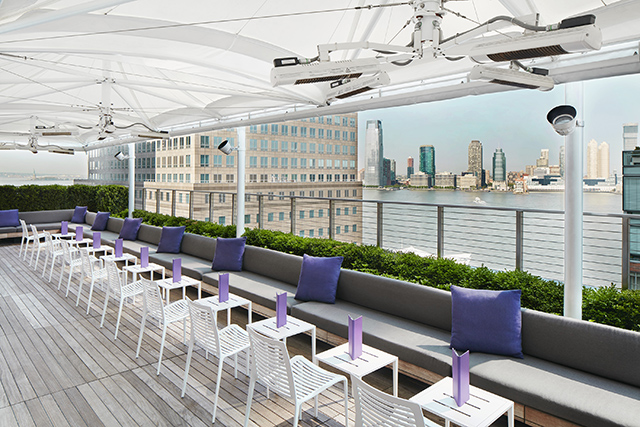
Hilton Hotels
There are a number of Hilton properties dotted across the City in prime locations that make it easy to sightsee. The Conrad New York Midtown is just steps from Central Park. Enjoy all the park has to offer, including rowboats, gardens and acres of green space. The Alto Rooftop bar, on the 22nd floor of The Bernic Hotel New York City, Tapestry Collection by Hilton, offers guests and patrons a panoramic view of the City and seasonally curated cocktails.
The Loopy Doopy Rooftop Bar, located on the 16th floor of Conrad New York Downtown and overlooking the Statue of Liberty and New York Harbor, will offer a fresh, seasonal menu, developed by the hotel’s executive chef, Khaled Tabet. Guests will be able to order a selection of culinary offerings, including gourmet-flavored kettle corn, hummus and sumac pita chips, rotisserie chicken salad sliders and a four-citrus fluke ceviche.
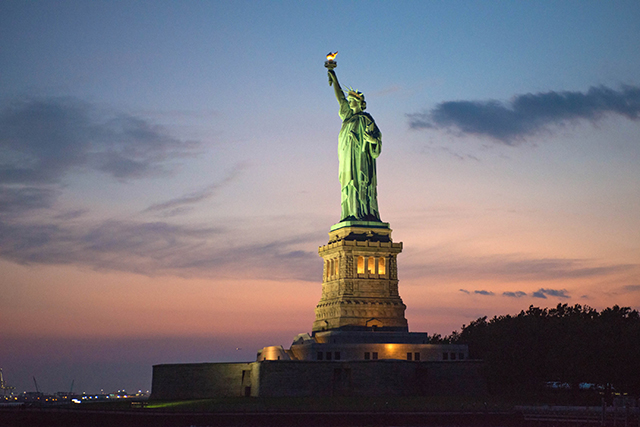
Statue of Liberty and Ellis Island
It’s one of the most recognizable symbols of the United States: the Statue of Liberty. The statue was designed to commemorate the emancipation of slaves in the United States, as evidenced by the broken chains at her feet; standing regal in New York Harbor since 1886, she’s welcomed countless newcomers, dream seekers and visitors to her shores. The only way to reach the statue is with a ferry ride to her perch on Liberty Island, which also gives you access to Ellis Island and two museums: the Statue of Liberty Museum and the Ellis Island National Museum of Immigration. If your ancestors came to America, you can search ships’ manifests to see when they arrived. A bit of trivia: the statue’s full name is Liberty Enlightening the World, and the tablet she holds in her left hand is inscribed with the Roman numerals “JULY IV MDCCLXXVI”—July 4, 1776, when the US Declaration of Independence was adopted.
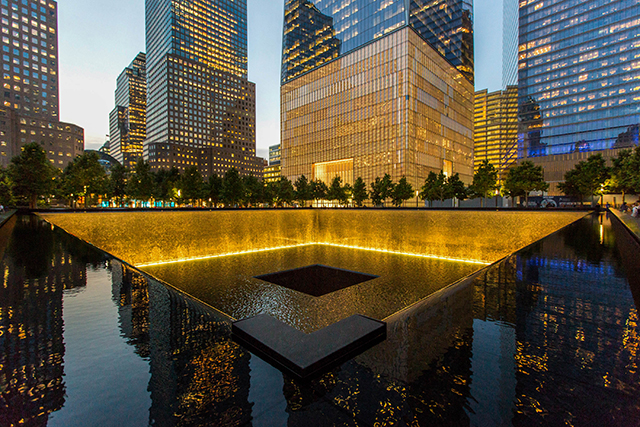
9/11 Memorial & Museum
This year marks the 20th anniversary of the September 11 terrorist attacks on America. The 9/11 Memorial & Museum will commemorate the event with the annual September 11 memorial ceremony and reading of victims’ names, and with a Tribute in Light on September 11–12, when two beams of light will shine from the former Twin Towers’ footprint into the sky. (The City will also join in by shining blue lights from the facades of various buildings.) The museum’s 110,000 square feet of space houses memorabilia, personal stories, interactive exhibits and artifacts related to the events. The outdoor memorial features two reflecting pools—the largest man-made waterfalls in North America—filling the exact footprints of the fallen towers. If you can’t make it in person, consider the live virtual tours of both the museum and the memorial.
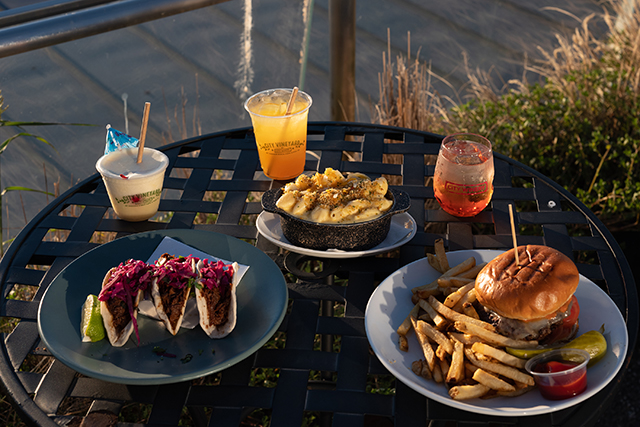
City Winery
Savor the views and vintages at City Winery, the only fully functional winery in Manhattan. Guests can enjoy dining indoors or outdoors on a riverside patio with incredible views of the Hudson River and can take in live music or a comedy show seven days a week. The winery also boasts a 32,000-square-foot private event space. Make sure to visit the pop-up location in Rockefeller Center and sister restaurant, City Vineyard, at Pier 26.
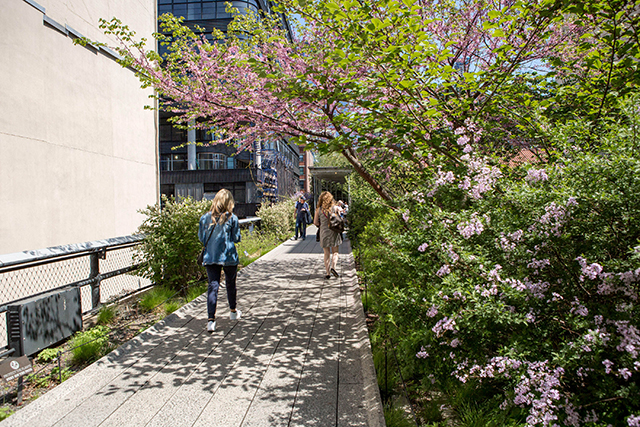
The High Line
To see the value of urban renewal projects, one need look no further than the High Line. Once an elevated railway that had crumbled into disrepair, the 1.5-mile walkway and public park is now a thriving garden space with more than 100,000 plants, an outdoor gallery for rotating public art and a gathering spot for both residents and visitors. Free timed-entry tickets are available for weekend visits only. Fun fact: the tracks ran through the National Biscuit Company building, now home to Chelsea Market, where the Oreo cookie was invented. (Near the southern end is Little Island, a new public park that juts out into the Hudson River.)
The High Line extends from the Meatpacking District up through Chelsea and almost into Hudson Yards, so for diversions you can step into the surrounding Meatpacking District (yes, it was once home to slaughterhouses and meatpacking plants) for retail therapy and nibbles at Chelsea Market, art gallery walks in Chelsea and sightseeing and shopping at Hudson Yards.
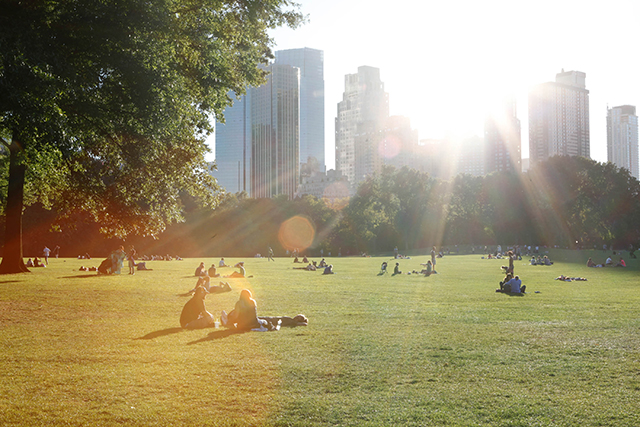
Central Park
Carving out a swath of 843 acres in the middle of Manhattan, Central Park has provided New Yorkers and visitors a calm respite since its first section opened in 1858. Make sure to visit if you have time: the endless green space packed into the surrounding steel and concrete skyscrapers is truly a sight to behold. Follow one of the only straight lines in the park on a saunter down the elm-lined Mall and Literary Walk (known to locals as the Promenade). Save some time to see Strawberry Fields if you’re a Beatles fan, or have a picnic on the Great Lawn and explore the North Woods, one of the quietest and most secluded sections of the park. For a more in-depth look, take one of Central Park Conservatory’s audio and self-guided tours. And Shakespeare lovers, rejoice. Shakespeare in the Park is back for the summer 2021 season with Merry Wives, which runs July 6–September 18 at Delacorte Theater. SummerStage performances will take place this summer as well, with hip-hop, indie, jazz and global artists, as well as a September 17 concert with the folk-rock band Dawes.
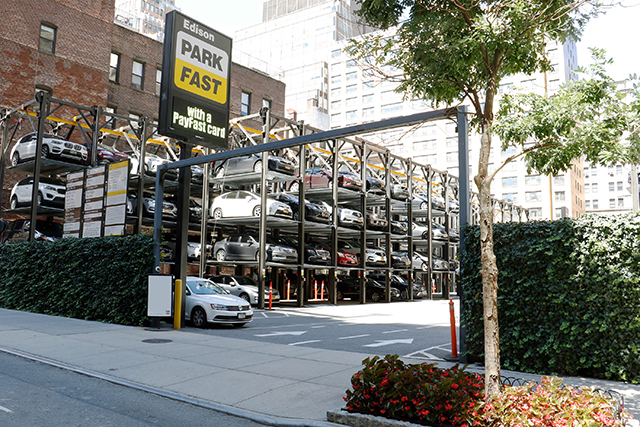
Edison ParkFast
You’ll find safe and secure parking near many of the City’s best attractions with Edison ParkFast. Attractions like Times Square, Hudson Yards, the High Line, Downtown Brooklyn, the Seaport District, Bryant Park, Rockefeller Center and more are just steps from Edison ParkFast lots.
Parking is also available at Secaucus Junction, a great solution for people driving to NYC.
Visit parkfast.com for reservations, payment and vehicle retrieval options. There’s no need to download an app.
All ParkFast lots feature Covid-19 safety precautions like low-touch valet service, mobile checkout, masked attendants, social-distancing measures and hand-sanitizing stations. Locally owned and operated since 1956, Edison ParkFast offers a best-in-class, safe and secure parking experience at all its locations.
Lincoln Center Outdoor Events
Lincoln Center is welcoming arts and culture back in a big way this year with its Restart Stages initiative. During the summer months, it will host chamber concerts, dance workshops, rehearsals, film screenings, cabaret performances and more on 10 outdoor stages set up on its Upper West Side campus. It will also feature a family area with art activities and an outdoor reading room created by the New York Public Library for the Performing Arts.
Neighborhood Walking and Dining Tours
The Washington Heights area is rich in history and filled with Dominican and Puerto Rican eateries and cultural enclaves. Lin-Manuel Miranda, of Hamilton and In The Heights fame, has strong roots in the neighborhood. Stroll through streets filled with mom-and-pop shops serving Latin American fare—pick up some fried plantains and a papaya shake for a quick pick-me-up at El Conde Steakhouse. South of here, explore cultural landmarks like the Apollo Theater that put Harlem on the map. Don’t forget to stop by the legendary Sylvia’s Restaurant for soul food classics such as chicken and waffles, collard greens and macaroni and cheese. Toward the bottom of Manhattan is Chinatown, where you can visit dim sum parlors, tea shops and Chinese markets.
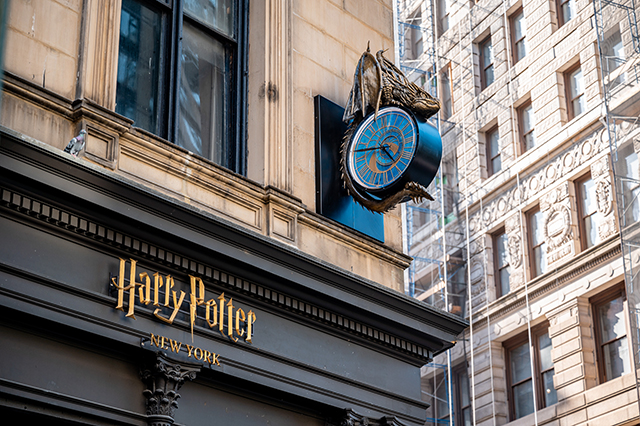
Harry Potter New York
Muggles and wizards alike will find the largest collection of Harry Potter merchandise under one roof at Harry Potter New York. Within the store’s three floors and over 20,000 square feet, guests can choose their very own wand, browse through robes, plushies and collectibles, and have a tankard of butterbeer, a swirl of butterbeer ice cream or take home a bottle of butterbeer from the Butterbeer Café. Along the way they’ll find fanciful details, like a specially created figure of Fawkes the Phoenix staring down from the ceiling and a charming reproduction of Honeydukes, complete with chocolate frogs and Bertie Bott’s Every Flavor Beans. Located in the Flatiron District, Harry Potter New York is sure to be a magical shopping experience for Wizarding World fans.
The Cloisters, Fort Tryon Park and Inwood Hill Park
The Met Cloisters, in Fort Tryon Park at the northern tip of Manhattan, houses the Metropolitan Museum’s collection of European medieval art. It’s where you’ll find the Unicorn Tapestries, seven woven hangings from the late 1400s and early 1500s that depict a unicorn hunt, and the museum’s collection of arms and armor, paintings and altarpieces. Even the building itself is art: European cloisters, chapels and other architectural details were painstakingly pieced back together to create the museum’s edifice. Explore Fort Tryon Park before or after your visit for a welcome natural respite. Designed by the sons of Frederick Law Olmsted (the landscape architect who designed Central Park), the 67-acre setting has sweeping views of the Hudson, walking paths and one of the City’s largest gardens. Head farther afield for more hiking and nature-watching: Inwood Hill Park, just to the north, is home to a portion of the Hudson River Bike Trail, a hiking trail and plenty of spots to see wildlife.
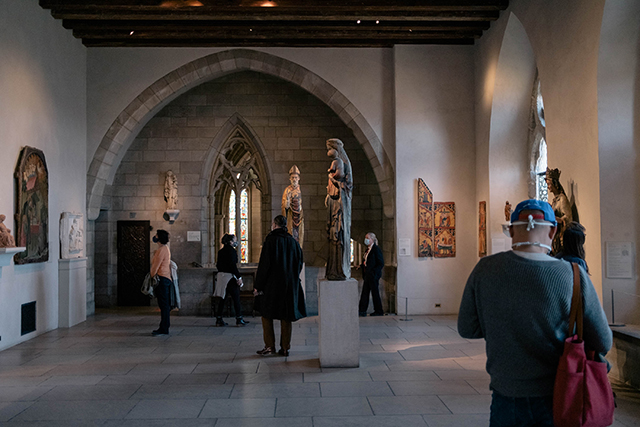
Outdoor Museum Spaces
Known as an oasis in the City, the Abby Aldrich Rockefeller Sculpture Garden at the Museum of Modern Art has myriad sculptures dotted around the open-air setting, flecked with weeping beech and Asian birch trees and seasonal plantings. See works by Picasso (She-Goat) and Matisse (Back I–V), or pose in front of Hector Guimard’s art nouveau Paris subway sign for a très-chic Insta shot. Equally sophisticated is the Metropolitan Museum of Art’s rooftop garden and café, a lush, open spot with unbeatable views of Central Park. Alex Da Corte’s As Long As the Sun Lasts, with its cobalt-blue version of Sesame Street’s Big Bird perched on a crescent moon, is on display in the garden through October 31. And don’t forget the Whitney Museum of American Art; the redesigned building has more than 13,000 square feet of terraces and outdoor exhibit space.
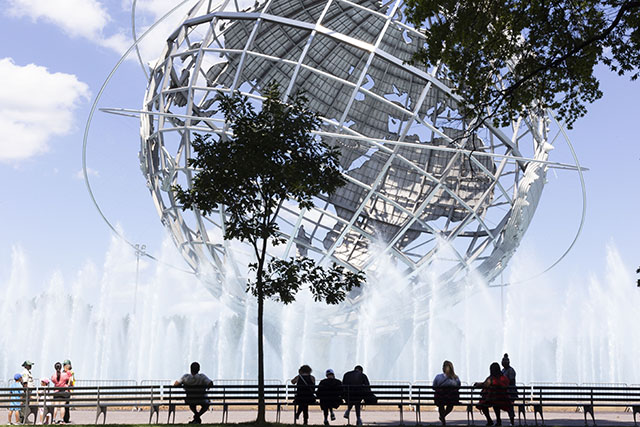
Queens
With nearly half of residents born outside the US, Queens is one of the most culturally diverse places in the world. Have your pick of day trips in this captivating borough, discovering history among World’s Fair relics at Flushing Meadows Corona Park, sampling your way through authentic global cuisines, cheering on the Mets at Citi Field and maybe even finding a few surprises along the way (surfing, anyone?).
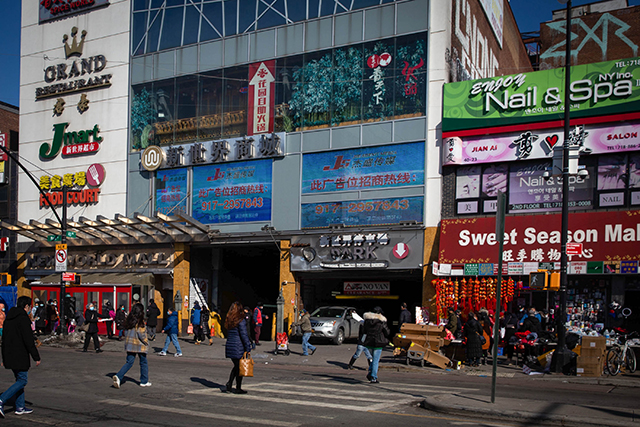
Flushing Chinatown Tour
Flushing features one of the largest and fastest-growing Chinatowns in the world, its blocks lined with Chinese restaurants and bakeries, herbal shops, jewelers and specialty shops. A walk down Main Street is a food tour of epic proportions, with eateries housing authentic Chinese cuisine, as well as Korean, Malaysian and Indian fare. Pick up an order of dumplings at White Bear (the number 6 pork wonton dumpling is a favorite) or sample your way through Queens Crossing mall for ramen and more traditional foods.
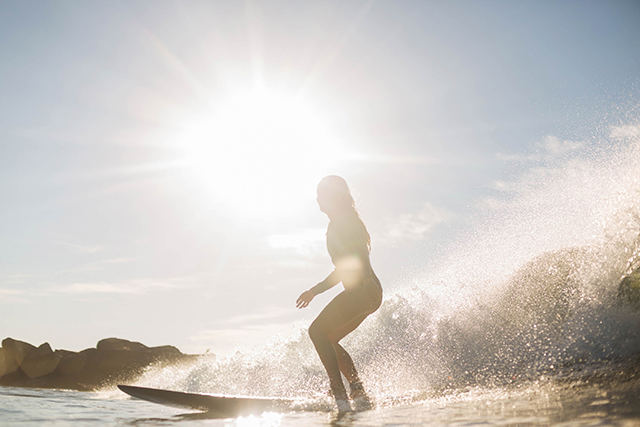
Rockaway Beach
Ever wonder why the Ramones wanted to hitch a ride to Rockaway Beach? With over 7 miles of shoreline and 5.5 miles of boardwalk, it’s an oceanside oasis within city limits. On top of free beach access, you’ll find plenty of great eats and activities to make a day of it.
Surf beaches are located between Beach 67th and Beach 69th streets, Beach 87th and Beach 92nd streets, and Beach 110th and Beach 111th streets. If you’re a beginner, rent a board from Boarders Surf Shop, which also offers lessons and surf camps, or learn from competitive surfer siblings Cliff and Will Skudin at Skudin Surf.
If you’re traveling in from any of the surrounding boroughs, the NYC Ferry, train or a ride share is likely your best mode of transportation. In fact, it’s not uncommon to see beachgoers taking the A train to the Rockaway Park Shuttle with surfboards in tow. If you drive, there’s free parking from Beach 11th to Beach 15th streets and at 95th Street.
Flushing Meadows Corona Park
The largest green space in Queens, Flushing Meadows Corona Park—once the site of both 1939 and 1964 World’s Fairs—is now a hub of culture and recreation for the community.
At the Queens Museum, located within the park, the Panorama of the City of New York is an impressive sight. Part of the museum’s permanent collection, the nearly 10,000-square-foot scale model of the five boroughs was commissioned by Robert Moses and built for the 1964 World’s Fair and has been periodically updated to represent a more current version of the City.
Just steps away from the landmark Unisphere is the Queens Theatre, known for its range of classical and culturally significant dance, theater and musical productions. Also on-site, the Queens Zoo and New York Hall of Science are perfect day-trip destinations with the kids.
Recreational facilities in the park include marinas and fishing, paddleboat rentals, skate parks, football and baseball fields, basketball courts, pitch and putt and mini-golf, an Olympic-size indoor pool and ice rink.
Sports Centers
Within Flushing Meadows Corona Park, Citi Field is where you’ll find the New York Mets. Set up a tailgate party in the stadium’s parking lot, and then head into the state-of-the-art ballpark to enjoy the game with Mr. Met and crew.
Just across the way from Citi Field is USTA Billie Jean King National Tennis Center, the site of Arthur Ashe Stadium, where every August–September the US Open Tennis Championship is played. For the rest of the year, the tennis complex hosts smaller tournaments and is open to the public for an hourly fee.
AAA members can find exclusive savings on sports tickets at AAA.com/Tickets.
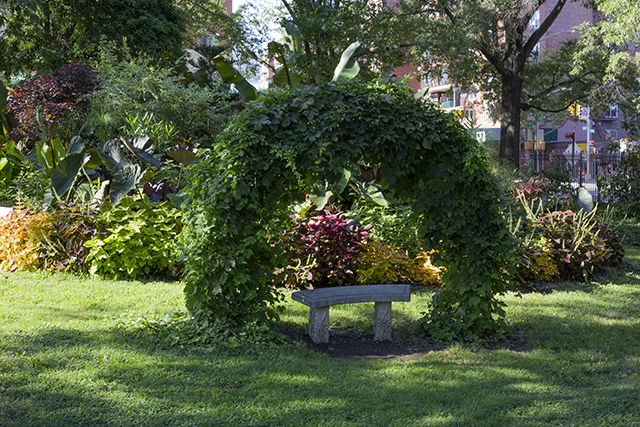
Queens Botanical Garden
Take some time to stop and smell the flowers at the Queens Botanical Garden. At nearly 40 acres, this serene escape flourishes with a wide array of flowers, plants and trees, with smaller gardens themed around world cultures. Enjoy the cherry trees blossoming in spring and lilies in summer, take in the aromas on the fragrance walk and see what all the buzz is about in the bee garden.
Astoria Park
Located along the East River between Robert F. Kennedy and Hell Gate Bridges, Astoria Park has great views from its huge swimming pool (at almost 55,000 square feet, it’s the City’s largest) and at sunset. But that’s certainly not all there is to enjoy. The 60-acre green space also has a skate park, tennis courts, dog park, playgrounds and a running track, and often hosts special outdoor events like free yoga classes, film screenings, concerts and storytelling sessions in the warmer months. It’s easily reached by car via the RFK Bridge and by subway.
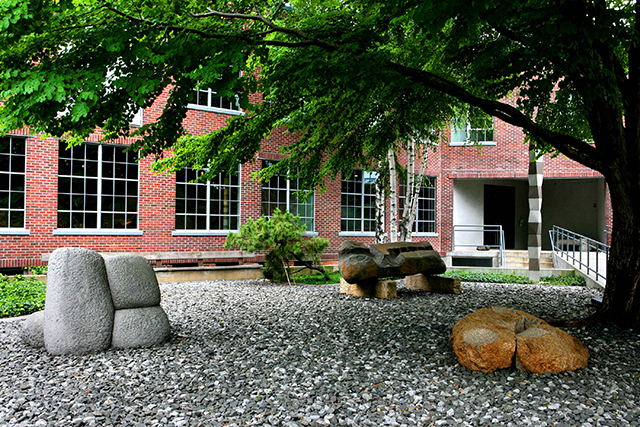
Art Scene
Enjoy art with a view of the Manhattan skyline at the Socrates Sculpture Park, an open-air exhibition spot for artists, as well a small neighborhood park. Steps away from Socrates, the Noguchi Museum features the works of Isamu Noguchi and has its own sculpture garden. For more local art discovery, head to MoMA PS1, an abandoned public school building turned contemporary art institution. The space features thought-provoking modern works, often addressing current social, cultural and political issues, from an ever-changing roster of artists, like the early 2020 exhibition Marking Time: Art in the Age of Mass Incarceration, featuring the works of current or formerly imprisoned artists. On exhibit through fall 2021, Rashid Johnson: Stage is a participatory installation that invites visitors to step up to one of five microphones on a stage in the museum’s courtyard and make their voices heard.
Jamaica Bay Wildlife Refuge
Go on a hike, search for turtle nesting areas, and admire the wildflowers and insects that call its over 9,000 acres of woods, salt marshes and freshwater ponds home at the Jamaica Bay Wildlife Refuge. With more than 325 species of birds, it’s a place bird-watchers will not want to miss. The refuge trails and parking lot are open daily from 6am to 9pm.
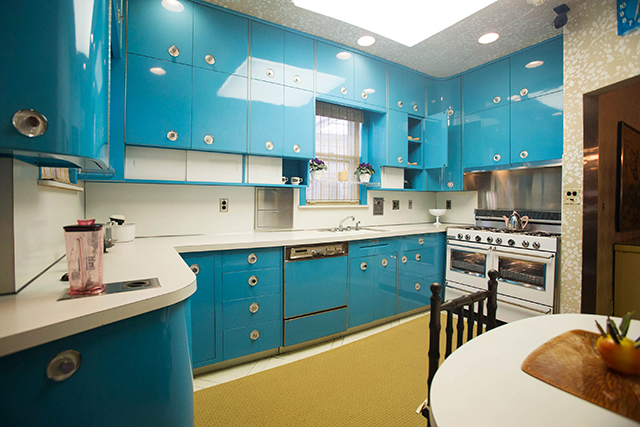
Louis Armstrong House Museum
The house in Queens’s Corona neighborhood that Louis Armstrong and his wife Lucille purchased in 1943 is now a historic site and museum. The house gives visitors a peek into the couple’s life, while the museum’s collection of personal and donated memorabilia, recordings, scrapbooks, instruments and awards pays tribute to Satchmo’s accomplishments and legacy in the world of jazz. It’s just one stop you can make on a self-guided exploration of the Queens Jazz Trail. As a place where hundreds of jazz musicians lived and played, including stars like Ella Fitzgerald and Lena Horne, Queens is an integral part of jazz history.
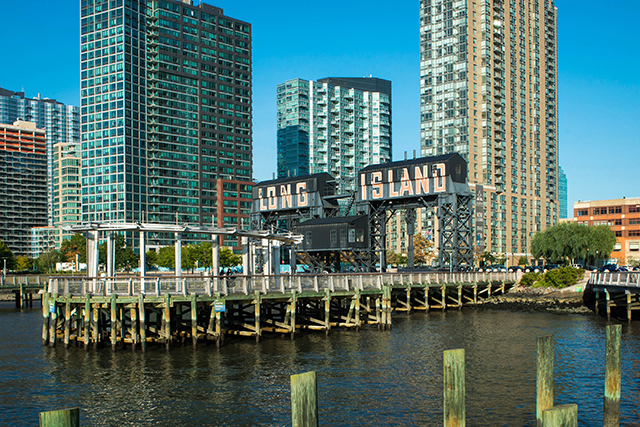
Gantry Plaza State Park
Formerly part of the City’s industrial waterfront, Gantry State Park in Long Island City is now a manicured 12-acre park and promenade running alongside the East River. Part of the unique appeal of the park, which has breathtaking views of the Midtown skyline, are the restored gantries that it is named for—once used to load and unload railcar floats and barges. Amenities include gardens and playground facilities, basketball and handball courts, a fishing pier and the iconic Pepsi-Cola sign.
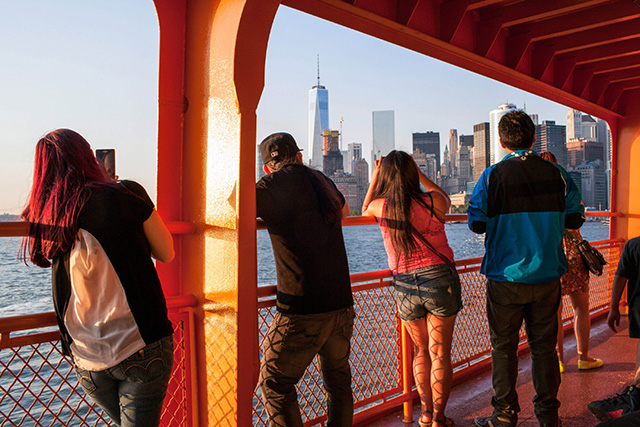
Staten Island
It doesn’t take much digging to unearth its jewels. The borough’s waterfront views, natural beauty, history and impressive cultural attractions (not to mention its pizza) should all be high atop any visitor’s itinerary.
Staten Island Ferry
Before the City’s bridges were built, residents paid 5 cents to travel by boat from borough to borough. Today, the Staten Island Ferry endures as the last remaining fleet of that system, offering a 5-mile, 25-minute trip to commuters and visitors alike. The ferry, which runs 24 hours a day, is free of charge. The vessel is as romantic as it is practical, offering views of the City’s skyline, New York Harbor, the Statue of Liberty, Ellis Island and Governors Island, while shuttling roughly 22 million commuters a year between St. George on Staten Island and Whitehall Street in Lower Manhattan.
Empire Outlets and St. George Neighborhood
If you’re in need of a little retail therapy, Staten Island may have just the prescription. Located next door to the St. George Ferry terminal is Staten Island’s newest pride: Empire Outlets, a 350,000-square-foot shopping mall, opened in 2019. The City’s only outlet center offers a singular experience: open-air shopping and dining, featuring household-name retailers (such as Nike, Levi’s, Guess, Gap, H&M and Nordstrom Rack) and a network of public spaces and walkways connecting visitors to its New York Harbor waterfront. While the lush complex offers several culinary options, it’s also a feast for the eyes. Empire Outlets is located near other noted Staten Island attractions such as Snug Harbor Cultural Center & Botanical Garden and the historic St. George Theatre.
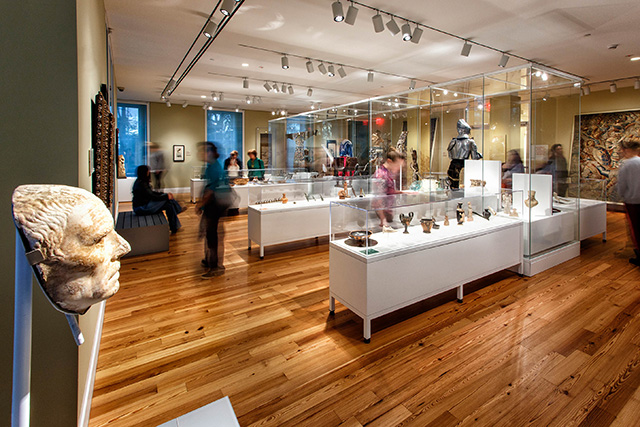
Snug Harbor Cultural Center & Botanical Garden
Snug Harbor may just be the borough’s greatest hidden secret: an immense cultural center where nature, history and art combine to shine a spotlight on Staten Island’s diverse charms. The peaceful 83-acre complex complements an immense botanical garden (which includes the popular Chinese Scholar’s Garden), with attractions such as the Staten Island Museum, the Newhouse Center for Contemporary Art and the Staten Island Children’s Museum.
Cobblestone streets connect Snug Harbor, originally built in the 19th century as a retirement community for sailors. History buffs will enjoy touring the Greek Revival homes as well as one of the oldest music halls in America, while budding ghostbusters can take advantage of several tours meant to lift the veil on the area’s storied haunted history.

Alice Austen House
Alice Austen was a true New York rebel, a trailblazing photographer whose uncompromising passions challenged the mores of 19th-century Staten Island. She took more than 8,000 pictures during her career and here you’ll find her best shots, including an 1890 documentation of immigrant living conditions during quarantine. But it’s her private pictures that are among her most celebrated, both historically and aesthetically. Today, the house where she lived with her female lover for 30 years features scores of candid photos of herself and friends that document romantic relationships of Victorian-era women. Her claim to history didn’t stop there: Alice’s independent streak led to her being one of the first women in Staten Island to own a car. Years later, she achieved another first: the Alice Austen House was designated an LGBTQ landmark by the National Park Service in 2017, the first in the state devoted to a woman.
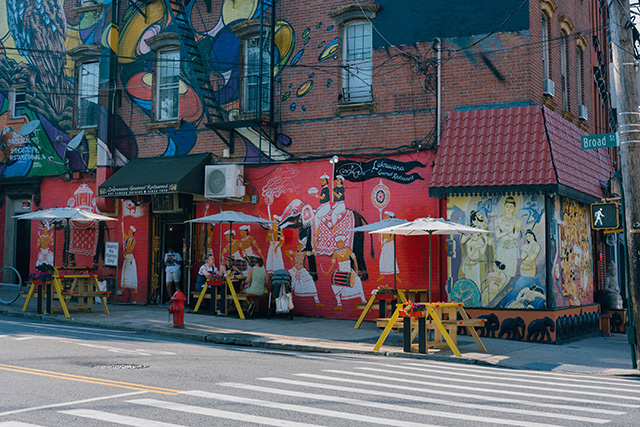
Little Sri Lanka
This vibrant immigrant community, a mere 20-minute stroll from the Staten Island Ferry station, houses the largest Sri Lankan population (roughly 5,000 people) found outside of South Asia. Little Sri Lanka, located in (and the nickname of) Staten Island’s Tompkinsville neighborhood, boasts a Buddhist temple, the Sri Lankan Arts and Cultural Museum and even an occasional live cricket match. The neighborhood also has a sterling foodie reputation, its many eateries and exotic flavors heralded by celebrity chefs and amateur gastronomes alike.
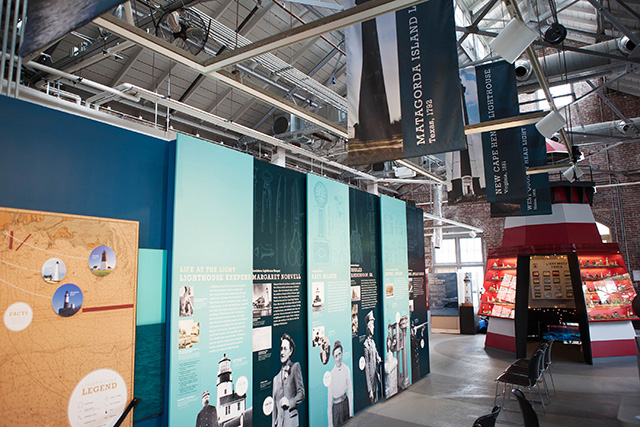
National Lighthouse Museum
Next to the Staten Island Ferry terminal stands the National Lighthouse Museum, a 2,400-square-foot structure dedicated to the beacons that lit America’s shores and the people who operated them. The museum features models of 180 US lighthouses from 29 states, as well as artifacts galore, including foghorns, lights and other signaling technology. But if visitors get tired of the self-guided tour, they can test their sea legs: the museum sells tickets seasonally for boat tours to real nearby lighthouses and other aesthetic pleasures of the harbor.
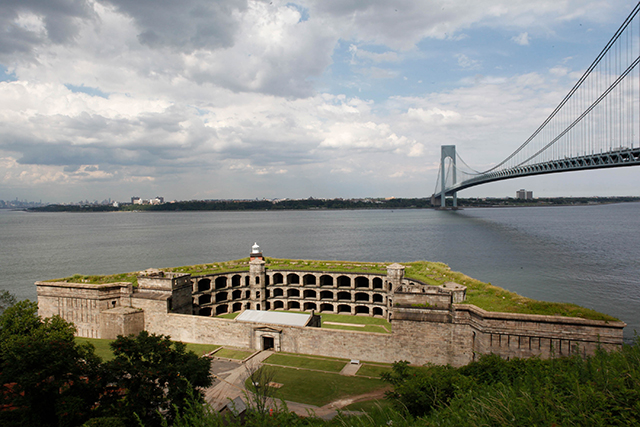
Fort Wadsworth
Fort Wadsworth is much more than just the traditional starting line of the New York City Marathon. Built as a lookout by Dutch settlers in the 17th century, the fort also played a key role in the Revolutionary War and once held the distinction of being America’s longest continually operating military fort. It’s easy to see why this vantage was so important to generations of New Yorkers: the location offers one of the best views of New York Harbor within the five boroughs. Today that means visitors can take inspiring shots of the skyline and waterfront. The 226-acre park, run by the National Park Service, offers a ton of outdoor activities, including camping, fishing and hiking, as well as guided tours through the historic fort—and even a touch of urban spelunking, with tours available to explore its underground tunnels. And you can expect to meet a few of the landscaping locals; in summer, the City uses a team of goats to control the growing grass and weeds of the hilly area.
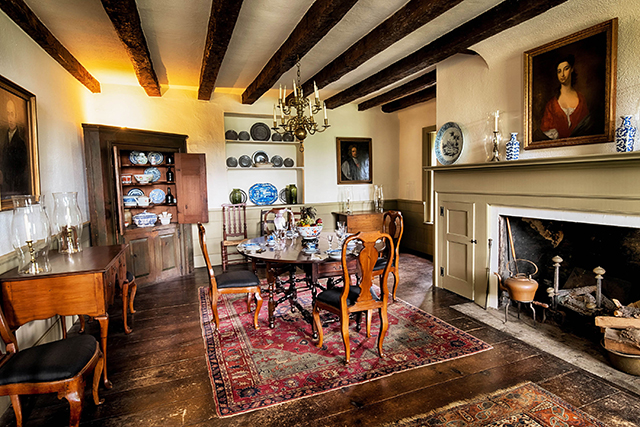
Historic Venues
Just as Broadway, Brooklyn and the Bronx trace their names to Dutch settlers, “Staaten Eylandt” was the original spelling of this land. And in Historic Richmond Town, settled in the late 1600s, visitors can relive New York’s origin story. The town is a sort of living history village and museum, a 100-acre park where visitors can touch and taste the past through guided tours of restored homes, as carpenters and blacksmiths busy themselves in workshops and lunch is roasted in open-hearth kitchens. The sprawling park also features a working farm, holiday events, haunted ghost tours and an outdoor beer garden.
At Staten Island’s southern tip, you’ll find the Conference House Museum, named after a historic—and unsuccessful—peace conference held there in 1776, when Benjamin Franklin and John Adams met with British commanders to end the Revolutionary War. Today Conference House stands as a celebration of America’s independence, as showcased in Franklin and Adams’ pivotal refusal to bow to the Crown.
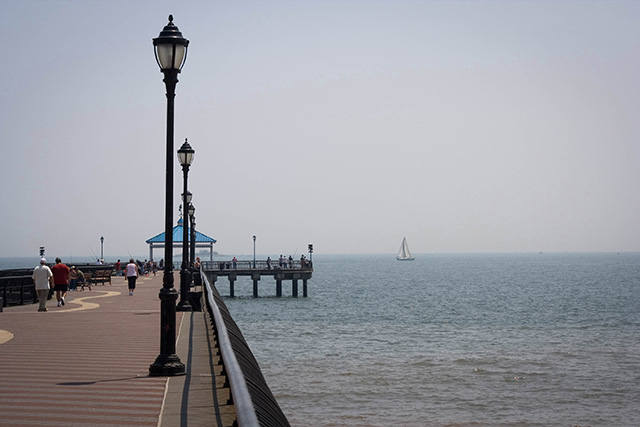
Staten Island Boardwalk, South Beach and Midland Beach
If you’re looking for a burst of fresh air and a beautiful place to fish, jog, bike or sunbathe—or just need a change of scenery—check out the 2.5-mile Staten Island boardwalk (also known as the Franklin D. Roosevelt Boardwalk and Beach). The boardwalk unites two of the Island’s sandiest and most expansive waterfronts—South Beach and Midland Beach—running parallel with the Verrazzano Bridge. The wooden boardwalk starts at Fort Wadsworth and runs past Ocean Breeze, one of the City’s largest and most popular fishing piers. And if you don’t feel like reeling in the catch of the day, you can simply watch gigantic ships as they inch in and out of the harbor. Visitors will also encounter playgrounds, tennis courts and chess tables as they travel south toward the boardwalk’s end at Midland Beach.
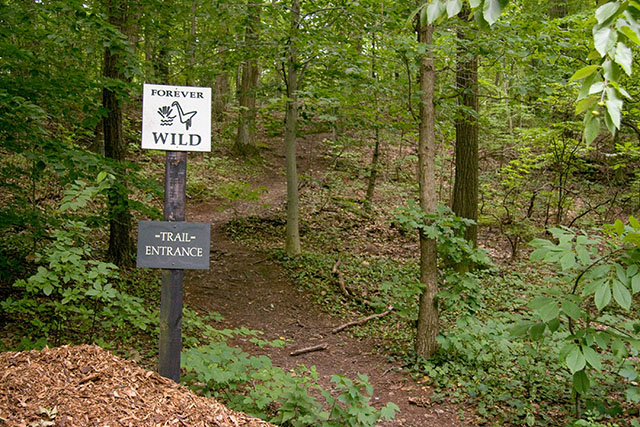
Greenbelt Hiking
Step into the Greenbelt and you’ll find yourself surrounded by an oasis of 2,800 pristine acres right in the heart of Staten Island. The City’s largest collective green space–which comprises multiple parks and nature sites–is replete with rolling hills, lakes, wetlands, rugged forests and wildflower-dotted meadows. The Greenbelt offers 35 miles of hiking trails (rated easy to moderate) where visitors will likely catch a glimpse of its friendly resident deer population. Recreational activities abound in various corners of the sprawling preserve: La Tourette Park offers golf and ballfields, while visitors can fish, picnic or play tennis at Willowbrook Park. And if you’re looking to learn something new, the Greenbelt also contains a nature center, the William T. Davis Wildlife Refuge (the first such sanctuary founded in New York City) and a native plant center, all offering exceptional educational opportunities to explore the City’s native flora and fauna.
13 Thoughts on “Enjoy the Best of Summertime in NYC”
Leave A Comment
Comments are subject to moderation and may or may not be published at the editor’s discretion. Only comments that are relevant to the article and add value to the Your AAA community will be considered. Comments may be edited for clarity and length.



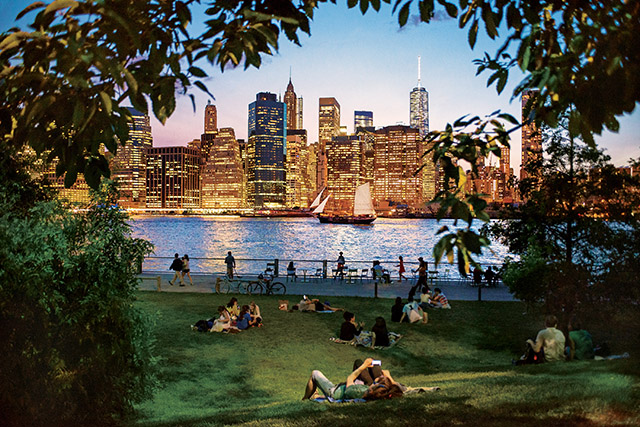




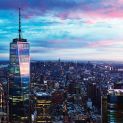
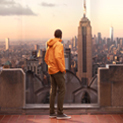




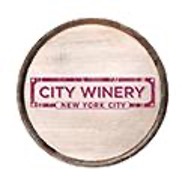

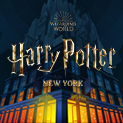



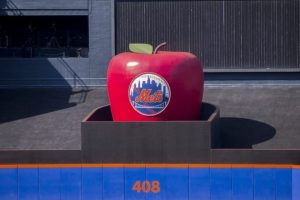









Regarding the Staten island ferry fare, the correct scenario is as follows: the fare was 5 cents each way until 1975 when it was raised to 25 cents round trip. It was raised in 1990 to 50 cents round trip. In 1997, due to NYC making the entire city one fare, it was deemed to costly to configurate the system to have a separate ferry fare after the commuters took a train/bus to the ferry and then the bus/subway after embarking in Manhattan, so the fare was dropped altogether, and still remains free today.
Thank you for this list. A couple of items on Staten Island I didn’t know about
I would like some information about Governor’s Island, Roosevelt Island, and City Island? How do you get there and what accommodations are there for people who can not do a lot of walking? Thank you.
Hi there!
I’ve forwarded your request to our Travel team, and a Travel Advisor should be reaching out to you shortly.
Thanks for reading!
-Dana L.
there is n o place to sign up to receive the guide, that I saw in my quick scroll to find it.
am I just missing it?
Hi Amy!
Our Summertime in NYC guide is digital-only guide. I hope it inspires you to explore the city! I know I can’t wait to visit in the fall.
Thanks for reading!
-Dana L.
In Manhattan you should have mentioned LITTLE ITALY & CHINA TOWN.
Is there a booklet that contains all of this information? Would truly love to have it. I can send my address (which is in Masachusetts) so that I can savor New York. Thanks so much. NYC is truly a gem to visit!!
Hi Jeanne and thanks for reading Your AAA Network. This New York City guide is only available in digital form, we apologize for the inconvenience.
The Jamaica Bay Wildlife refuge in Broad Channel is a place I highly recommend. Many varieties of birds and wildflowers and spectacular views of Jamaica Bay with the Manhattan skyline far in the distance.
I would like to go with a tour and a guide.
Is this possible?
Hi Mariette!
I’ve forwarded your request to our Travel team. A Travel advisor should be reaching out to you shortly.
Thanks for reading!
-Dana L.
The Staten Island Zoo is a must for this list – great programs for the whole family. I’m surprised that it is not on this list???